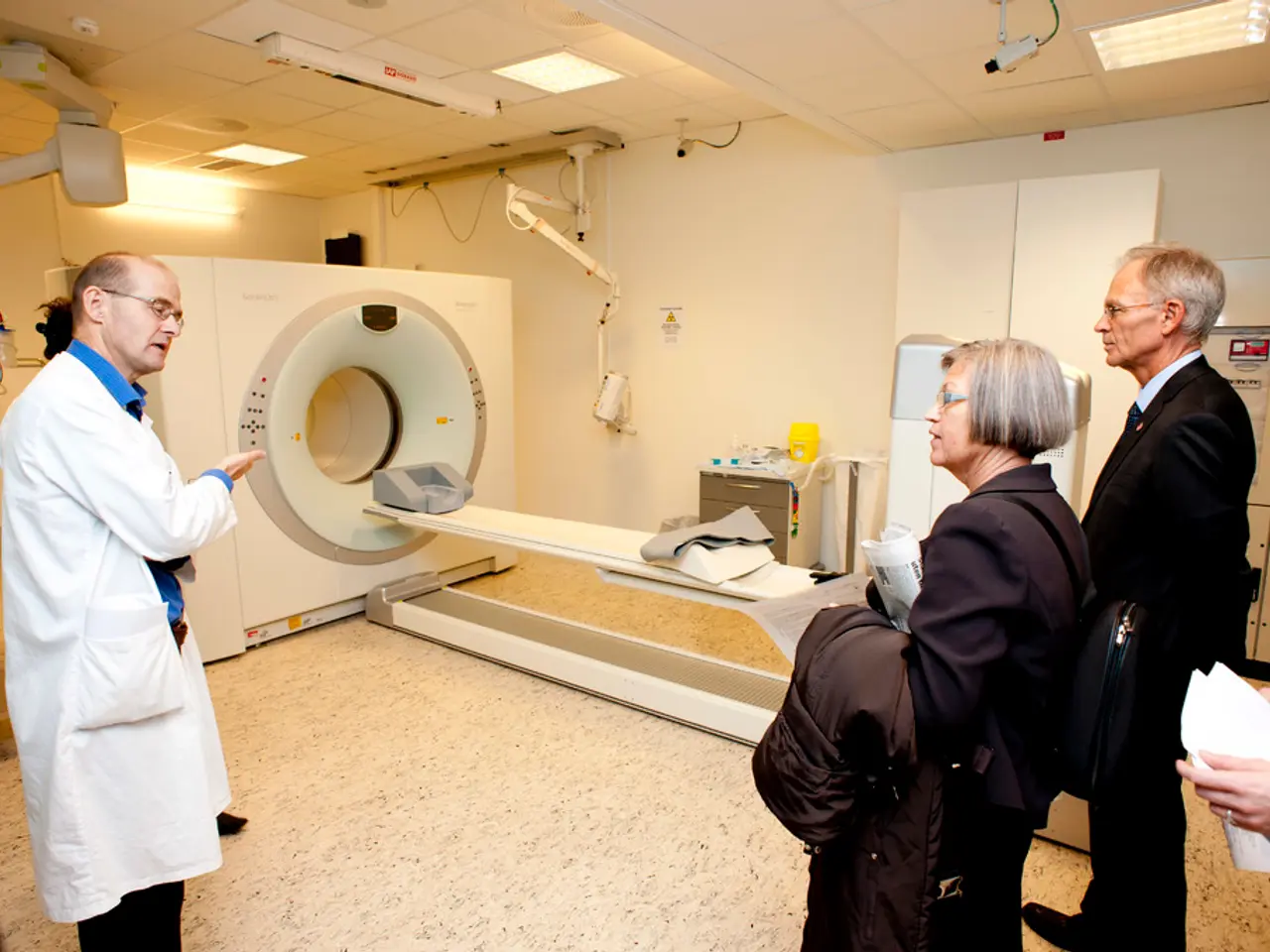HIV and Shingles Connection: Examining the Relationship
In the United States, approximately one in three people will develop shingles during their lifetime, a condition caused by the varicella-zoster virus, the same virus that causes chickenpox. However, for individuals living with HIV, the risk and potential complications of shingles significantly increase.
HIV weakens the immune system, making it harder for the body to control the reactivation of the varicella-zoster virus. As a result, people with HIV are at a 15 times higher risk of developing shingles compared to those without the virus [1].
Immunosuppressed individuals may experience more severe symptoms and a higher risk of complications. These can include disseminated zoster involving multiple organs like the brain, lungs, or liver, neurological complications such as encephalitis, meningitis, or myelitis, and the development of chronic pain conditions like postherpetic neuralgia (PHN) [1][3].
Moreover, HIV-positive individuals are more likely to develop secondary bacterial infections of the shingles rash, further complicating recovery [5].
Early treatment with antiviral medications can help reduce the severity of shingles and its complications in immunocompromised individuals [5]. Vaccination, while not a cure for shingles, can help prevent the condition in HIV-positive individuals, although vaccine efficacy may vary depending on the individual's immune status.
Receiving treatment for HIV is the best way to boost the immune system and reduce the risk of other infections, including shingles. With treatment, a person with HIV can have the same quality of life as a person without HIV [6].
It's essential to remember that shingles causes a painful rash on the upper body and is not contagious, but it can only occur in people who have had chickenpox. If the varicella-zoster virus develops into active shingles, a person will first experience numbness, itching, or nerve pain, which may be severe.
If you suspect you have shingles and are living with HIV, it's crucial to see your doctor as soon as possible to avoid or reduce the impact of complications [4]. With proper care and treatment, it's possible to manage shingles and its potential complications effectively.
References: [1] Gershon AA, Whitley RJ. HIV and Herpes Zoster. New England Journal of Medicine. 2006;355(10):1031-1042. [2] Centers for Disease Control and Prevention. (2021). HIV and Shingles. Retrieved from
- HIV, a virus that weakens the immune system, increases the risk and potential complications of shingles, a condition caused by the varicella-zoster virus, which also causes chickenpox.
- People with HIV have a 15 times higher risk of developing shingles compared to those without the virus.
- Immunosuppressed individuals with HIV may experience more severe symptoms and a higher risk of complications from shingles.
- Disseminated zoster, involving multiple organs like the brain, lungs, or liver, is a possible complication for HIV-positive individuals with shingles.
- Neurological complications such as encephalitis, meningitis, or myelitis can also result from shingles in HIV-positive individuals.
- Postherpetic neuralgia (PHN), a chronic pain condition, is another potential complication of shingles for individuals living with HIV.
- HIV-positive individuals are more likely to develop secondary bacterial infections of the shingles rash, increasing the complexity of their recovery.
- Early treatment with antiviral medications can help reduce the severity and complications of shingles in immunocompromised individuals.
- Vaccination can help prevent shingles in HIV-positive individuals, although the efficacy may vary depending on the individual's immune status.
- Receiving treatment for HIV can boost the immune system and reduce the risk of shingles and other infections.
- With proper management and treatment, individuals with HIV can maintain the same quality of life as those without HIV.
- Shingles causes a painful rash on the upper body and is only contagious to those who have not had chickenpox.
- Before the rash appears, people with shingles may experience numbness, itching, or nerve pain.
- If individuals suspect they have shingles, it's crucial to consult a doctor as soon as possible, especially if they are living with HIV.
- Proper care and treatment can help manage shingles and its potential complications effectively.
- Chronic kidney disease, COPD, type-2 diabetes, specific types of cancer, respiratory conditions, and digestive health issues are other medical conditions that may impact an individual's health and wellness.
- Eye health, hearing, and skin conditions are vital aspects of overall health that require attention and regular check-ups.
- Mental health, including disorders like Alzheimer's disease, autoimmune disorders, migraines, and neurological disorders, should also be taken into account as part of one's health care.
- Skin care, therapies and treatments, nutrition, and multiple sclerosis are additional health topics that fall under health and wellness, fitness and exercise, and the broader field of medicine, including Medicare and CBD for potential relief of chronic conditions like rheumatoid arthritis.




